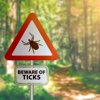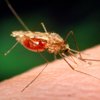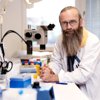Fritextsökning
Artiklar per år
Innehållstyper
-

Neanderthal gene variants may cause Viking disease
A new study suggests that the so-called Viking disease, which affects the hand function in many older people, may be linked to gene variants inherited from Neanderthals.
-

Anna Törner: The minute between life and death
“I have never told anyone about this day that happened more than 20 years ago. But I sometimes reflect on what happened, on what might have happened. When I try to understand why I haven’t told anyone, I find the answer: a feeling of shame. There is no forgiveness for something like this, even though it is very human to be distracted for a moment,” Anna Törner writes in a column.
-

Rapid developments in AI – “All stakeholders are struggling to understand it”
Artificial intelligence is being discussed more and more, and developments in the field are moving rapidly. As the Swedish Medical Products Agency testifies, keeping up with developments is not easy.
-

Samuel Lagercrantz: The government’s performance in healthcare and life sciences so far
Since the change of government in Sweden, developments in the healthcare sector have shown promising signs, but the outlook in life sciences is less promising, writes Samuel Lagercrantz in an editorial.
-

The first Lyme disease vaccine faces a delay
Pfizer and Valneva’s Lyme disease vaccine, which could be the first of its kind, is facing delays of about a year. The reason is problems at trial sites in the United States, which have forced the companies to drop half of the participants in an ongoing Phase III study.
-

A new malaria vaccine offers hope but much more research is still needed
There has long been no vaccine against malaria, but there have been breakthroughs in recent years. However, it is still unclear how we become immune to the malaria parasite, and this is a vital piece of the puzzle for creating effective vaccines, says malaria researcher Kristina Persson.
-

Uncertainty about the government’s life science work
The government’s national coordinator for life science, Jenni Nordborg, left her position almost four months ago. No one has yet succeeded her, and now questions are being raised both about the government’s plans for the office and the Swedish life science strategy.
-

He got inside the head of Sweden’s vaccine hunter
The hunt for the COVID-19 vaccine is the theme of the new book Vaccinjägaren (The Vaccine Hunter). It tells the story of Richard Bergström’s mission as Sweden’s national vaccine coordinator and the scheming that went on behind the scenes in Europe. Author and medical journalist Nils Bergeå co-wrote the book with Richard Bergström.
-

Elypta awarded one million USD from the Star Trek creator’s foundation
Swedish company Elypta, which develops methods for early cancer detection, has been awarded one million USD from an unexpected source: a foundation set up in memory of the creator of Star Trek.
-

Conference on Alzheimer’s reveals several advances in the field
In Gothenburg, Sweden, researchers and pharmaceutical companies from all over the world gathered to discuss one specific issue – neurological diseases. Life Science Sweden has talked to some of those that attended the conference.
-

Meeting with focus on South Korea and Japan’s life sciences
Large, complex and exciting – this is how Britta Stenson, Business Sweden, describes the life science markets of Japan and South Korea, which took centre stage during a webcast seminar.
-

“I am driven by the desire to develop a product that can be sold worldwide”
Ranked number one in the world by the WHO in diarrhoea research and soon in phase III studies for its vaccine candidate – Scandinavian Biopharma is rushing forward in the pursuit of the world’s first ETEC vaccine. Meet the company’s CEO Björn Sjöstrand.
-

Column: ”Cheating with pea flowers and does it matter whether you are right?”
Is it possible to forgive shortcuts or outright cheating in science - if it turns out that the researcher was ultimately right? Anna Törner discuss this topic in a column.
-

The Swedish National Board of Health and Welfare rejects prioritising andrology as a speciality
Male infertility can be linked to a shorter lifespan and several severe diseases, but when couples who want children are examined, the focus is on the woman. Experts in the field claim that andrology needs to become a speciality in Sweden to increase awareness and knowledge. But the Swedish National Board of Health and Welfare says that it is not a priority.
-

“An entire industry is about to be wiped out”
According to Jennie Ekbeck, CEO of Umeå Biotech Incubators, Sweden risks not having any small diagnostic companies left in five years.
-

How critical are the “Spermageddon” reports? – Researchers call for action
A much talked about meta-study indicates that sperm concentration in men’s seminal fluid has halved in 40 years. Experts in andrology that Life Science Sweden speaks to believe that the results must be taken seriously, and call for action from the Swedish authorities.
-

Column: ”Authentic leadership and clear mandates pave the way for more female CEOs”
”I believe that the aspect of having clear mandates and titles on the one hand and women progressing into top positions must be explored further”, Helena Strigård writes in a column.
-

Individual DNA passport could result in fewer drug side effects
You may be required to show a DNA passport when you pick up medicines at the pharmacy in the future. According to a new study, patients might suffer 30% fewer side effects if the drug treatment is adapted to their genes.
-

Claims of life science companies fleeing abroad is a myth according to survey
The claim that life science companies are moving abroad is exaggerated. In fact, only a tiny percentage is leaving the country, according to a survey.
-

Precision medicine centre: “Extensive activity on several fronts”
Two years ago, the Karolinska Institutet and the Karolinska University Hospital announced that they would jointly launch the Precision Medicine Centre. Medtech Magazine called Anna Wedell, who is heading the work, to find out…
-

The government proposes fines for pharmaceutical companies that fail to notify drug shortages in time
According to a compilation from the Swedish Medicines Agency, the number of residually notified medicines increased by 54 % in Sweden last year compared to the previous year. In a bill presented by the government a number of proposals are put forward to counteract the problem.
-

He saved lives with his theories – was ostracised and ended up in a mental hospital
Hungarian doctor Ignaz Semmelweis (1818-1865) undoubtedly possessed plenty of persistence, diligence and sound reasoning skills – but he was hardly blessed with luck and timing.